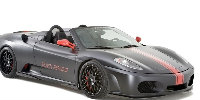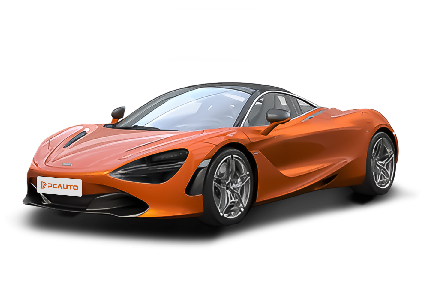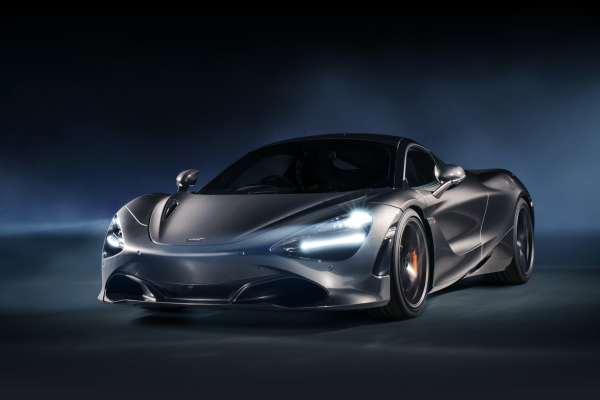Q
When was McLaren 720S launched?
The McLaren 720S burst onto the scene at the 2017 Geneva Motor Show before hitting showrooms later that same year, stepping in as the worthy successor to the 650S. Under its sculpted hood lies a potent 4.0-liter twin-turbo V8, cranking out a whopping 720 horsepower. That translates to a blistering 0-100 km/h sprint in just 2.9 seconds and a top speed of 341 km/h, really showcasing McLaren's mastery when it comes to lightweight tech and aerodynamic wizardry.
For Malaysian petrolheads, the 720S isn't just another high-performance supercar; it's turned heads big time thanks to its incredible driving dynamics and those iconic, innovative dihedral doors. Now, Malaysia's climate can get pretty hot and humid, but the 720S laughs that off – its advanced cooling systems and carbon fiber MonoCage tub make sure it performs like a champ no matter what the weather throws at it.
Sure, the 720S doesn't come cheap in the Malaysian market, but let's be real – its exclusivity and mind-blowing performance have made it a hot ticket among collectors and performance junkies alike. And honestly, it just goes to show why McLaren remains a big hitter in the supercar game.
Special Disclaimer: This content is published by users and does not represent the views or position of PCauto.
Related Q&A
Q
How much horsepower does a 2019 McLaren 720S have?
The 2019 McLaren 720S is powered by a 4.0-liter twin-turbocharged V8 engine cranking out 720 horsepower—hence the "720S" in its name—and a meaty 770 Nm of torque. Mated to a 7-speed dual-clutch gearbox, this thing rockets from 0-100 km/h in just 2.9 seconds and tops out at 341 km/h. Performance-wise, it's an absolute beast.
Underpinning it all is the Monocage II carbon fiber monocoque chassis, which nails that perfect balance of featherweight construction and seriously beefed-up rigidity. Then there's the aerodynamics—total next-level stuff. The active rear wing and those wild dihedral doors aren't just for show; they work overtime to generate serious downforce at high speeds.
For Malaysian petrolheads, the 720S hits that sweet spot between track-ready weapon and daily-drivable supercar. Sure, our hot and humid climate can be tough on high-performance cooling systems, but McLaren's engineering team has that covered. This thing stays cool and composed, no matter what you throw at it.
And let's not sleep on the cockpit. It's all about driver ergonomics here, with a sharp digital instrument cluster and a slick infotainment system. So you're not just getting mind-blowing speed—you're getting luxury and tech to match.
Q
Who makes the McLaren 720S engine?
The McLaren 720S gets its heart from McLaren's own engineering team – specifically, a 4.0-liter twin-turbocharged V8 engine codenamed M840T. This powerplant is designed and built entirely at McLaren's UK production facility, really showcasing the brand's deep technical prowess when it comes to high-performance powertrains. The M840T cranks out 720 horsepower and 770 Nm of peak torque, and when paired with that 7-speed dual-clutch gearbox, it hurls the 720S from 0-100 km/h in just 2.9 seconds, with a top speed of 341 km/h. That's some seriously impressive performance. For Malaysian petrolheads, the McLaren 720S isn't just another supercar; it's a masterpiece of engineering. Its engine tech highlights McLaren's leading edge in lightweight materials and aerodynamics, and the car has built up a solid presence in Malaysia's luxury high-performance car market, earning plenty of love from local automotive enthusiasts. What's more, McLaren keeps refining its engine tech to strike that balance between performance and environmental responsibility – think efficient turbocharging systems and precise fuel management to boost fuel economy. That's especially crucial in a market like Malaysia, where a passion for high-performance cars goes hand-in-hand with growing environmental awareness.
Q
What is the interior like on a 2019 720S?
The interior of the 2019 McLaren 720S screams supercar from every angle. They’ve gone all-in on lightweight materials—think plenty of carbon fiber and Alcantara—without skimping on that premium feel. The seats? Wrapped in high-grade leather, they offer killer support, whether you’re bombing down a highway or attacking a set of twisties.
The center console is clean, driver-focused, and home to an 8-inch vertical touchscreen that handles Apple CarPlay and navigation like a pro. Then there’s that trick folding digital gauge cluster—it changes what info it displays based on your driving mode, adding a serious tech edge.
Storage space? Yeah, it’s tight, but let’s be real—when you’re buying a performance machine like this, cargo room isn’t exactly top of the priority list. One thing that really stands out is the "Monocage II" carbon fiber tub. It’s a smart move, cutting weight while beefing up rigidity—a setup you don’t see in every supercar.
For folks in Malaysia, the 720S holds up well in the heat. The AC cranks hard, and the seat ventilation works a treat. Just keep in mind, leather and Alcantara need a bit more TLC in that hot, humid climate to stay looking sharp.
Now, the 720S might not hit the same over-the-top luxury notes as some Italian brands, but where it really shines is in functionality and that laser-focus on the driver. You see that same philosophy across McLaren’s lineup, and honestly? It works.
Q
What awards did the 2019 McLaren 720S win?
The 2019 McLaren 720S racked up some serious hardware from big-name international awards thanks to its killer performance and stunning design. We're talking big ones here—like being named "Supercar of the Year" by none other than Top Gear, and scoring "Best Performance Car of the Year" from GQ magazine. Under the hood, this beast packs a 4.0-liter twin-turbo V8 that cranks out 720 horsepower and 770 Newton-meters of torque. That translates to a blistering 0-100 km/h sprint in just 2.9 seconds and a top speed of 341 km/h, really showing off McLaren's mastery when it comes to lightweight tech and aerodynamics.
For Malaysian petrolheads, the 720S story gets even more exciting with the track-focused GT3 version, which has been tearing it up in Asian motorsport events. Sure, local road conditions and regulations mean you can't quite uncage its full beast mode on public streets, but that doesn't stop it from being the stuff of dreams for legions of supercar fans. And let's not forget the engineering cred—its carbon fiber monocoque chassis and active suspension system have earned it plenty of respect from the tech heads too.
Q
What colors did the 2019 720S come in?
The 2019 McLaren 720S arrived in the Malaysian market boasting a range of classic and highly personalized color options, split between standard hues and exclusive customized finishes. The standard palette highlights McLaren staples like **Volcano Yellow**, **Senna Grey**, **Lantana Purple**, and **Onyx Black**. For those seeking something truly one-of-a-kind, McLaren Special Operations (MSO) opened the door to bespoke color choices – think head-turners like **Amethyst Black** or **Belize Blue** – tailored to satisfy the desires of discerning owners who crave a truly unique aesthetic.
As a high-performance supercar, the 720S’s color isn’t just about looks; it plays with the car’s striking lines, especially when paired with special paint techniques like metallic or matte finishes that enhance depth and dimension. Given Malaysia’s hot and humid, rain-prone climate, it’s wise for owners to opt for paint finishes with good weather resistance and to stick to regular maintenance routines to keep that showroom shine intact.
What’s more, McLaren’s color names often nod to the brand’s rich heritage and motorsport legends. Take **Senna Grey**, for example – a clear tribute to the incomparable Ayrton Senna. These little touches don’t just add character; they elevate the car’s collectibility and cultural significance.
Q
How much horsepower does the 2019 720S have?
The 2019 McLaren 720S is powered by a 4.0-liter twin-turbo V8 engine cranking out 720 horsepower – hence the "720S" in its name – and a meaty 770 Nm of torque. Paired with a 7-speed dual-clutch gearbox, this thing rockets from 0-100 km/h in just 2.9 seconds and tops out at 341 km/h. Performance-wise, it's an absolute beast. For Malaysian petrolheads, the 720S isn't just about raw power; its lightweight carbon fiber MonoCage chassis and active aerodynamics work together to boost handling and high-speed stability, making it a solid fit for our twisty local roads. What's cool is that despite its relatively modest engine displacement, the twin-turbo setup lets it punch way above its weight in terms of power delivery. This trend of small-displacement, high-output engines is becoming more common in modern supercars – it meets stricter emissions standards while still serving up that adrenaline-pumping driving experience we crave. Price-wise, the 720S sits around the RM1.5 million mark in Malaysia, firmly in the top-tier supercar league, but it still offers pretty good value for money compared to its direct competitors.
Q
How many gears does a 720S have?
The McLaren 720S is hooked up with a 7-speed dual-clutch gearbox (SSG), engineered to deliver quick yet smooth shifts—perfect for a high-performance supercar. The beauty of a dual-clutch setup here is that power delivery stays nearly uninterrupted during gear changes, letting drivers focus more on nailing the perfect line when pushing hard. As a standout in McLaren's Super Series, the 720S strikes a nice balance with its gearbox tuning—comfortable enough for daily drives but sharp when you hit the track. Even in Malaysia's hot and rainy weather, the transmission's cooling system keeps temperatures in check, so performance never skips a beat. For Aussie petrolheads who love supercars, the 720S isn't just about blistering acceleration; its gearbox tech shows off the best of what engineering can do these days. These high-performance boxes do need regular love, though—owners should stick to the factory maintenance schedule to keep things running strong for the long haul.
Q
What are common 720S problems?
Alright, let's talk about the McLaren 720S in the context of Malaysia's hot and humid climate. As a high-performance supercar, owners might encounter some typical niggles. For instance, there can be occasional gremlins in the electronic systems – think wonky dashboard displays or sensor false alarms. More often than not, a quick software update will iron those out.
Now, the 720S makes extensive use of carbon fiber, which is fantastic for weight and rigidity. However, some owners have noted a bit of creaking or rattling from interior panel gaps after prolonged exposure to the sun. Importantly, this is just an annoyance and doesn't compromise the car's safety one bit.
The cooling system is another area to keep an eye on, especially during those frustratingly gridlocked traffic jams. Regularly cleaning out the radiator grilles is a simple but effective way to prevent overheating warnings – trust me, you don't want that light popping up when you're stuck.
And let's not forget those iconic dihedral doors – they look absolutely epic, but in some of Malaysia's more compact or low-ceilinged parking garages, you've really got to mind the opening angle to avoid any unwanted scrapes.
For the performance purists out there, remember that those Pirelli P Zero tires need a proper warm-up after rain to deliver their full grip potential. That's just the nature of high-performance rubber, not a flaw in the car itself.
My advice to Malaysian 720S owners? Stick religiously to the official maintenance schedule. Pay extra attention to the air conditioning system and battery checks too – keeping those in top shape will ensure your McLaren performs at its absolute best, even when the tropical mercury soars.
Q
How much is a used McLaren 720S?
In Malaysia, the price of a used McLaren 720S can vary quite a bit depending on factors like condition, year, mileage, and specs. Generally, you're looking at a range of around 1 million to 1.5 million ringgit. The newer ones with lower miles might nudge closer to that 1.5 million mark, while the ones with more years or kms under their belt will be a bit easier on the wallet.
The 720S is a proper high-performance supercar. Under the hood, there's a 4.0-liter twin-turbo V8 cranking out 720 horsepower, which rockets it from 0-100 km/h in just 2.9 seconds—total thrill to drive. And it's not just straight-line speed; the lightweight carbon fiber body and clever aerodynamics really sharpen up the handling too.
If you're in the market for a used supercar like this, definitely go through professional channels to check the vehicle's history and mechanical condition. You want to make sure there are no major accidents or hidden issues. Also, factor in the ongoing costs—insurance, maintenance, taxes. High-performance cars like this usually have pretty steep upkeep bills, so make sure your budget has enough buffer for the long haul.
Q
Is McLaren 720S full carbon?
The McLaren 720S isn't all carbon fiber, but its core structure relies on the Monocage II carbon fiber tub – McLaren's second-gen carbon tech that seriously slashes weight while cranking up rigidity. They've also thrown carbon fiber into the doors and roof, but other bits like the bumpers and some body panels stick with aluminum or composites to balance cost and performance. For Malaysian petrolheads, that carbon fiber tech isn't just about handling the tropical heat and humidity; it also delivers rock-solid stability when you're pushing hard. And let's not forget McLaren Special Operations (MSO) – they'll hook you up with extra carbon fiber exterior bits if you want to make that 720S truly your own. Carbon fiber's everywhere in supercars these days, right? It's lighter and stronger than old-school metal, which does wonders for fuel economy and handling. But building a full carbon fiber body is pricey, so most brands, McLaren included with the 720S, go the mixed-materials route.
Popular Cars
Model Year
Car Compare
Car Photo
Latest Q&A
Q
How much does it cost to buy a 2024 Tesla Model 3?
The 2024 Tesla Model 3 starts at around RM 175,000, but the final price depends on your chosen configuration and add-ons. Opt for the Long Range or Performance version, and you’re looking at a higher tag.
As Tesla’s entry-level model, it packs cutting-edge EV tech, including 500+ km of range on a single charge and standard Autopilot for both daily commutes and road trips. Just keep in mind extra costs like insurance, registration, and potential home charger installation.
Tesla’s Supercharger network is expanding locally, with solid coverage in major cities, making charging hassle-free. Maintenance costs? Typically lower than gas cars—no oil changes, fewer moving parts—so long-term savings add up.
If you’re after more thrills, the Performance variant hits 0-100 km/h in roughly 3 seconds. Plus, government EV tax perks help soften the upfront cost.
Q
How reliable is the 2024 Model 3?
The 2024 Model 3 delivers solid reliability, thanks to Tesla’s continuous software updates and hardware refinements. Key areas like the battery management system and Autopilot have seen multiple optimizations, leading to a noticeable drop in failure rates.
This model features a stiffer body structure and an improved suspension setup, offering a smoother ride. Upgraded interior materials also help reduce cabin rattles—a common gripe with earlier builds.
EV maintenance costs remain low (no oil changes, etc.), though it’s wise to periodically check battery health and charging components for long-term performance. For shoppers eyeing EVs, charging infrastructure and home charging options matter—thankfully, public chargers are expanding fast, making daily use more convenient.
If you frequently road-trip, planning charging stops ahead helps. While the range easily handles daily drives, a little route prep goes a long way in maximizing the experience.
Q
What is the battery range of the Tesla Model 3 2025?
The battery range of Tesla Model 3 2025 is expected to be optimized based on existing models, and specific data needs to be released officially. However, referring to the EPA range of the 2024 rear wheel drive version, which is about 438 kilometers, and the high-performance version, which is about 513 kilometers, the 2025 model may further improve, especially in terms of battery technology or energy efficiency management. For electric vehicles, the range is greatly affected by driving habits, road conditions, and climate. Air conditioning may slightly reduce the range in hot weather, but the battery thermal management system can usually maintain stable performance. In terms of charging, Model 3 supports super fast charging, which can replenish about 250 kilometers of range in about 15 minutes, while home charging stations require 6-8 hours to fully charge. Daily commuting or long-distance travel are practical enough, it is recommended to follow Tesla's official website or local showroom for the latest information.
Q
Is the 2024 Model 3 worth the price?
The 2024 Model 3 strikes an impressive balance between price and performance. Its upgraded range, more refined interior, and enhanced autonomous driving features genuinely boost its competitiveness—especially for tech-savvy, eco-conscious buyers.
Tesla optimized the battery efficiency this time around, making it suitable for both daily commutes and longer trips, while the handling stays true to the brand’s signature responsiveness. If your budget allows and you’re open to EVs, this one’s worth considering—though a test drive is wise to see if it matches your driving style.
That said, local charging access matters. While public chargers are becoming more common, home installation costs should factor into your budget. Alternatives in this price range exist, so cross-shop specs and service policies (like warranty coverage or charging network support) to make a well-rounded decision.
Q
How many miles does a 2024 Tesla Model 3 get?
The 2024 Tesla Model 3 offers varying range figures depending on configuration. The rear-wheel-drive (RWD) version delivers an EPA-estimated 272 miles (approx. 438 km), while the all-wheel-drive Long Range model pushes that to around 341 miles (roughly 549 km). Real-world range may vary slightly based on driving style, road conditions, and climate.
As a pure EV, the Model 3 achieves this efficiency thanks to its advanced battery management system and lightweight design. It also supports fast charging—at a Tesla Supercharger, you can add up to 200 km of range in about 15 minutes. Whether for daily commutes or longer trips, that’s more than enough for most drivers, especially with charging infrastructure becoming more widespread.
If you need to maximize range, tweaking your driving mode or using the car’s built-in energy optimization features can help squeeze out even more miles.
View More



















Pros
Cons